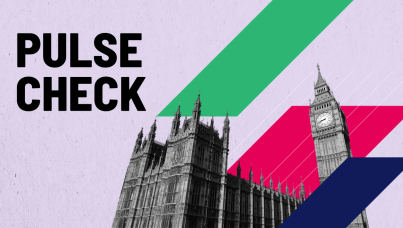Public Hostility Towards Immigration: Understanding the Contradictions
Labour's immigration white paper is clearly a response to growing public concern. But shifting public opinion on such a complex and emotive issue isn't easy, especially when public opinion has so many - often contradictory - aspects. Our new Ipsos paper, "Public Hostility Towards Immigration: Understanding the Contradictions," explores these complexities.
Key takeaways:
- The numbers game: 67% of Britons believe immigration is too high. Yet, when it comes to specific groups, only 14% want fewer immigrant doctors or nurses, and 19% fewer seasonal fruit and vegetable pickers. This shows the desire to reduce immigration isn't driven by animosity towards specific worker groups.
- The asylum seeker factor: 70% of British adults associate 'immigrants' with asylum seekers more than workers or students. 68% think there are too many asylum seekers, compared to 41% for workers and 37% for students. However, many overestimate UK refugee intake: in reality, the UK ranked 19th in Europe for asylum applications relative to population size.
- The belief barrier: 62% believe asylum seekers are economic migrants falsely claiming refugee status to take advantage of welfare services. This belief fuels negative attitudes more than practical concerns.
Our new attitudinal segmentation reveals fascinating contradictions. The "pragmatic group" (13% of the population) believes in the principle of refuge (82%), positive contributions by refugees (85%), and successful integration (84%). Yet, they also support closing borders (58%). Why? 87% believe most refugees are 'bogus'.
Our research show that changing views on such an emotive issue isn't simply about correcting misinformation. It demands understanding of how people form and maintain their beliefs, which are often resistant to change, especially when tied to identity and values.
The challenge for Labour? Reconciling increased public demand for stricter immigration controls with the need to avoid alienating groups who support immigration, particularly for skilled workers and students. At the same time, Labour must maintain a compassionate and humanitarian approach towards asylum seekers and refugees, a stance potentially conflicting with stricter controls. This creates a political tightrope for the government, risking criticism from both proponents of tighter controls and those advocating a more open and compassionate immigration policy.







